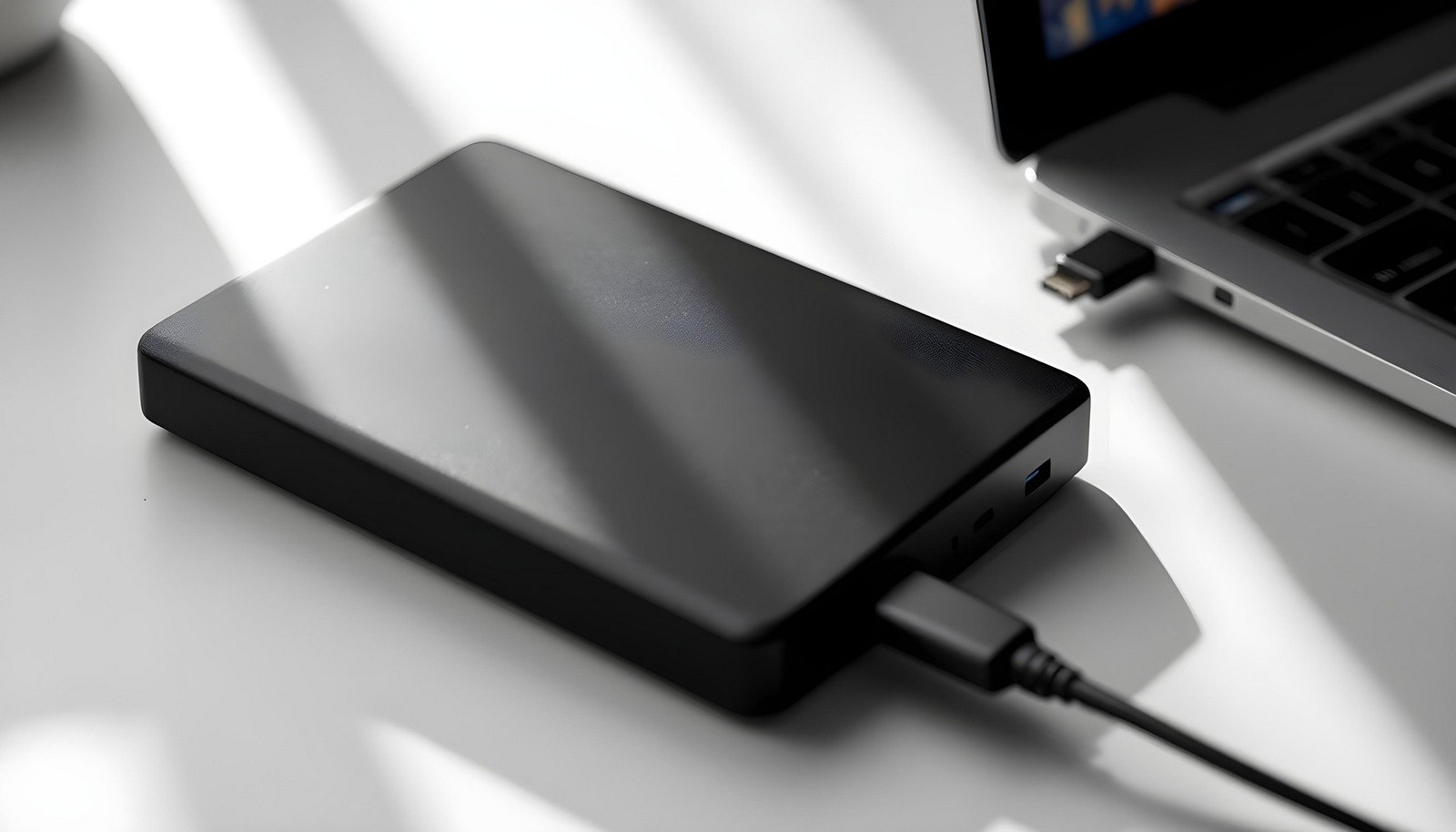External HDD

Quick Navigation:
- External HDD Definition
- External HDD Explained Easy
- External HDD Origin
- External HDD Etymology
- External HDD Usage Trends
- External HDD Usage
- External HDD Examples in Context
- External HDD FAQ
- External HDD Related Words
External HDD Definition
An External Hard Disk Drive (HDD) is a portable storage device that connects to a computer externally, typically via USB, Thunderbolt, or other data-transfer interfaces. It serves as an additional or backup storage solution, allowing users to store, retrieve, or transfer large volumes of data. External HDDs come in various capacities, ranging from a few gigabytes to several terabytes, and are used for storing media files, documents, and even entire system backups. These drives often include protective casings to ensure durability and mobility.
External HDD Explained Easy
Think of an External HDD as a backpack for your computer. When your computer is running out of space, you can pack up extra stuff (like photos, videos, or files) into this backpack. It's something you can carry around and use on other computers too, just like taking your bag with you to school or a friend’s house.
External HDD Origin
The concept of external storage originated from the need to expand computer memory without upgrading internal components. Early iterations appeared in the 1980s, accompanying personal computers, with advancements leading to today’s compact, high-capacity devices.
External HDD Etymology
The term "hard disk drive" refers to the physical spinning disks (platters) inside the device that store data magnetically. The "external" prefix signifies its portable and detachable nature.
External HDD Usage Trends
External HDDs have remained a popular choice despite the rise of cloud storage, especially for users who require large-capacity storage solutions or want offline access to their data. They're extensively used by photographers, video editors, and gamers for storing high-resolution media and files. The advent of solid-state drives (SSDs) has introduced competition, but HDDs still dominate due to their affordability and capacity advantages.
External HDD Usage
- Formal/Technical Tagging:
- Data Storage
- Backup Devices
- Portable Storage - Typical Collocations:
- "portable external HDD"
- "high-capacity external HDD"
- "external HDD for backups"
- "external HDD data recovery"
External HDD Examples in Context
- An external HDD can store an entire season of high-resolution video files for offline viewing.
- Photographers often rely on external HDDs to back up their photos during shoots.
- Gamers use external HDDs to expand their console storage for downloading additional games.
External HDD FAQ
- What is an external HDD?
An external HDD is a portable data storage device connected externally to a computer. - How does an external HDD differ from an internal HDD?
An external HDD is portable and connects via external interfaces like USB, while an internal HDD is built into the computer. - Can I use an external HDD for system backups?
Yes, external HDDs are often used to store system backups. - How much data can an external HDD store?
Capacities range from a few gigabytes to several terabytes. - Are external HDDs compatible with all devices?
Most external HDDs are universally compatible, but some may require specific formatting for certain operating systems. - Do external HDDs require power?
Smaller drives are powered via USB, but larger ones may need an external power source. - What is the lifespan of an external HDD?
Typically, 3-5 years depending on usage and handling. - Can I encrypt data on an external HDD?
Yes, many external HDDs support encryption for securing data. - Is an external HDD better than cloud storage?
It depends on your needs. External HDDs provide offline access and more control, while cloud storage offers remote accessibility. - How can I recover data from a failing external HDD?
Use data recovery software or consult a professional data recovery service.
External HDD Related Words
- Categories/Topics:
- Data Storage Technology
- Backup Solutions
- Portable Computing
Did you know?
The world’s first hard disk drive, introduced in 1956 by IBM, weighed over a ton and could store just 5 MB of data — less than a single song today! External HDDs today can weigh under a pound and store up to 20 TB.
PicDictionary.com is an online dictionary in pictures. If you have questions or suggestions, please reach out to us on WhatsApp or Twitter.Authors | Arjun Vishnu | @ArjunAndVishnu

I am Vishnu. I like AI, Linux, Single Board Computers, and Cloud Computing. I create the web & video content, and I also write for popular websites.
My younger brother, Arjun handles image & video editing. Together, we run a YouTube Channel that's focused on reviewing gadgets and explaining technology.



Comments powered by CComment